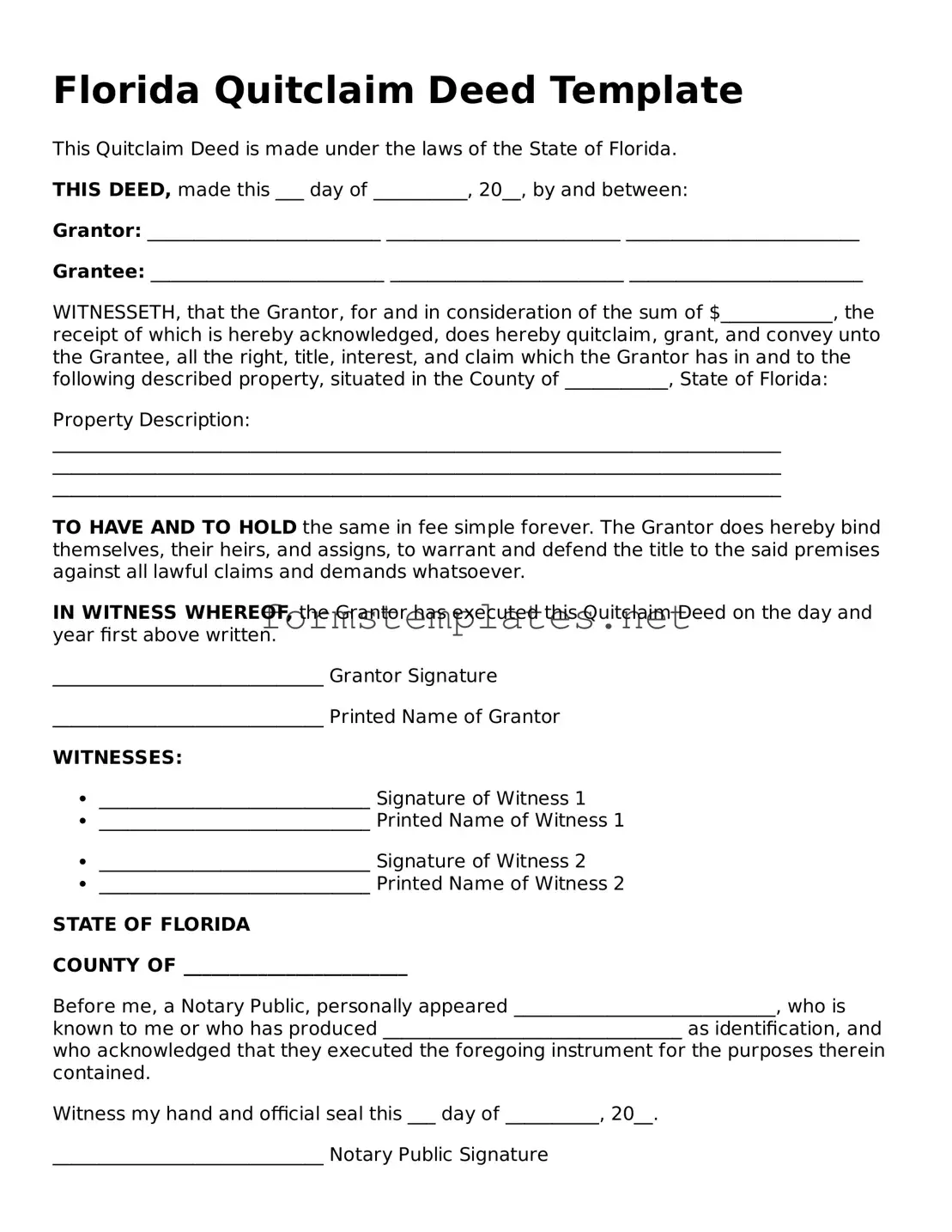Attorney-Approved Florida Quitclaim Deed Template
A Florida Quitclaim Deed is a legal document used to transfer ownership of real property from one party to another without making any guarantees about the title's validity. This type of deed is often employed in situations where the seller does not wish to provide warranties regarding the property, such as in family transfers or when the property is being given as a gift. Understanding the implications of using a quitclaim deed is essential for both parties involved in the transaction.
Open Editor Now

Attorney-Approved Florida Quitclaim Deed Template
Open Editor Now

Open Editor Now
or
⇓ PDF Form
Your form still needs attention
Finalize Quitclaim Deed online — simple edits, saving, and download.